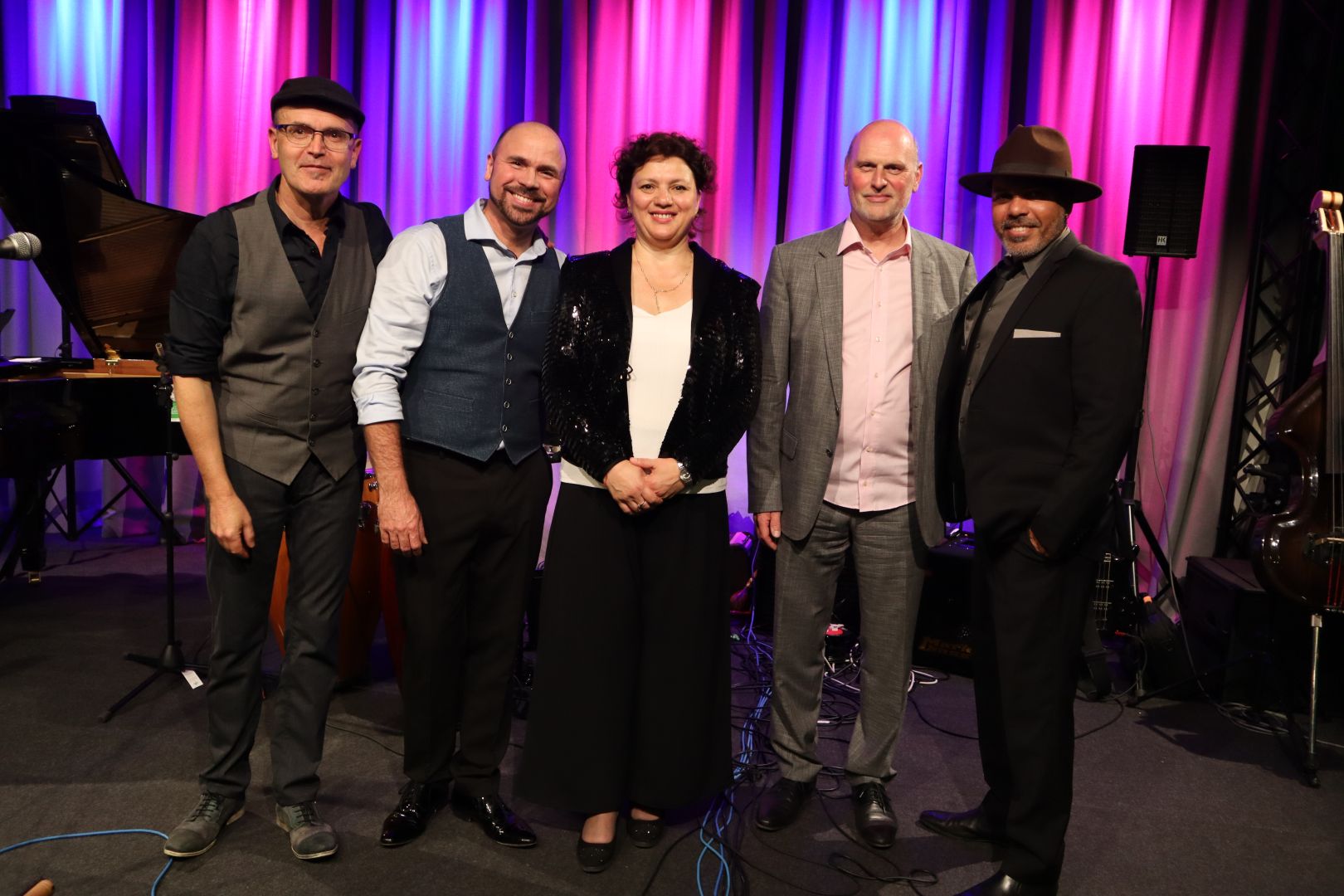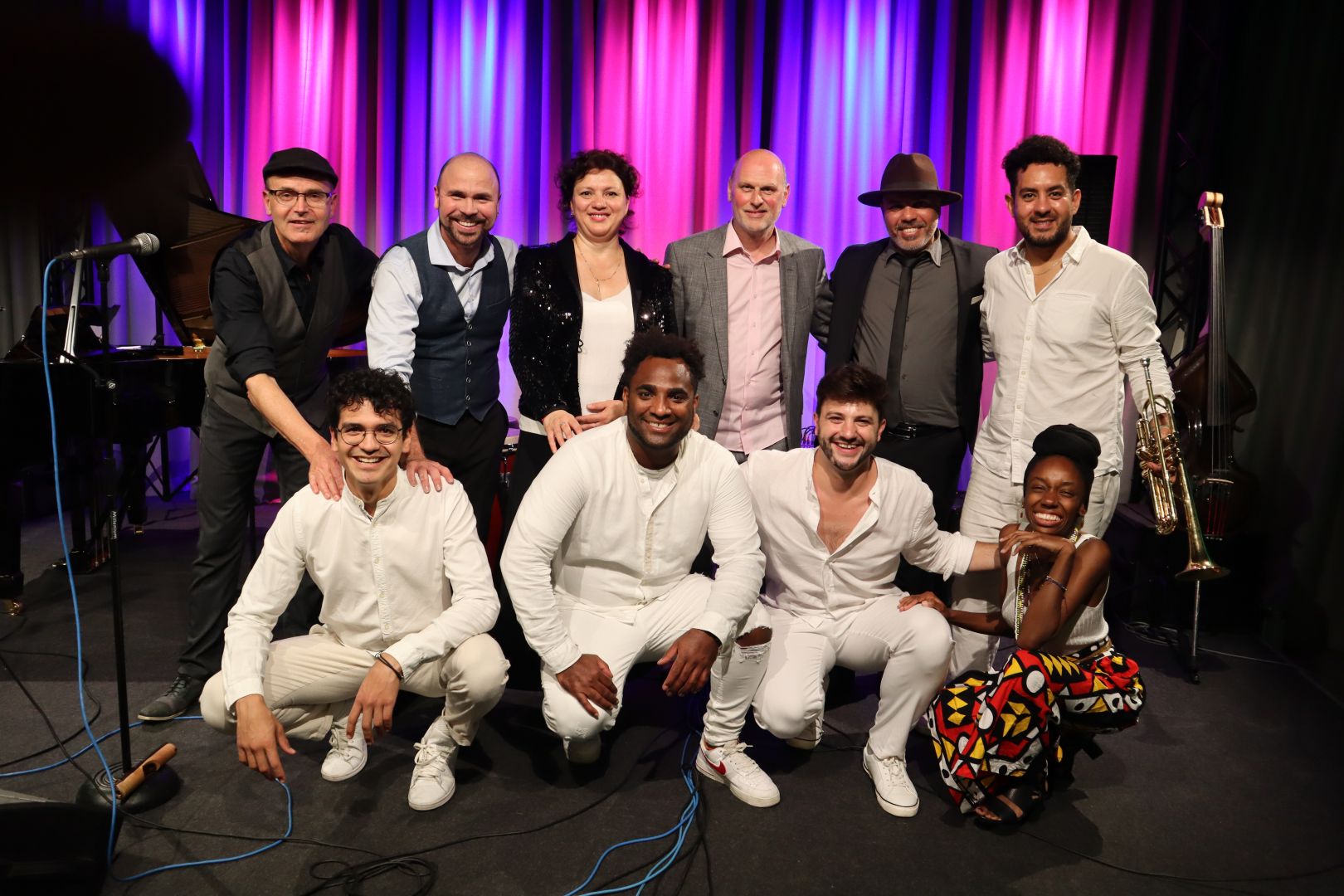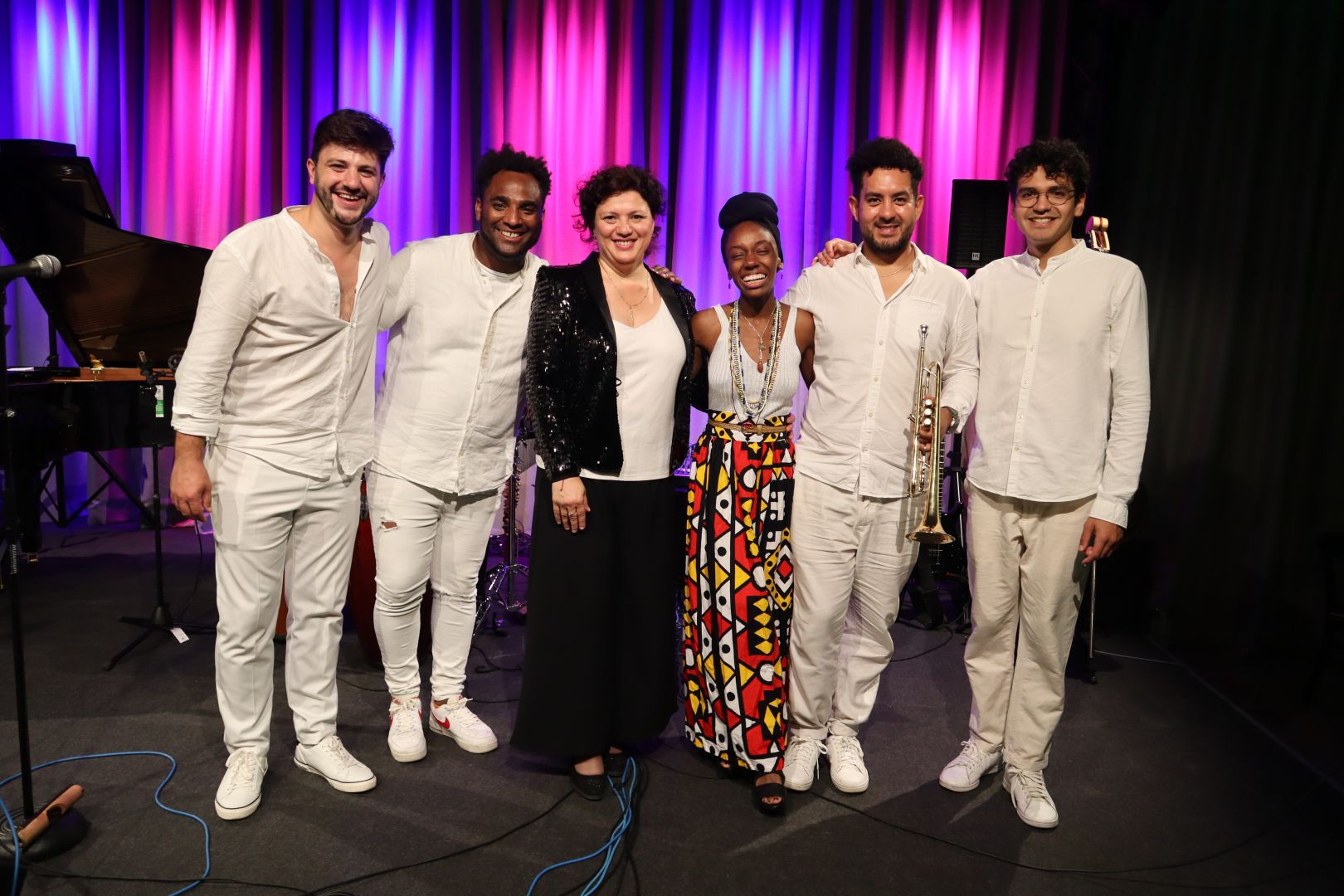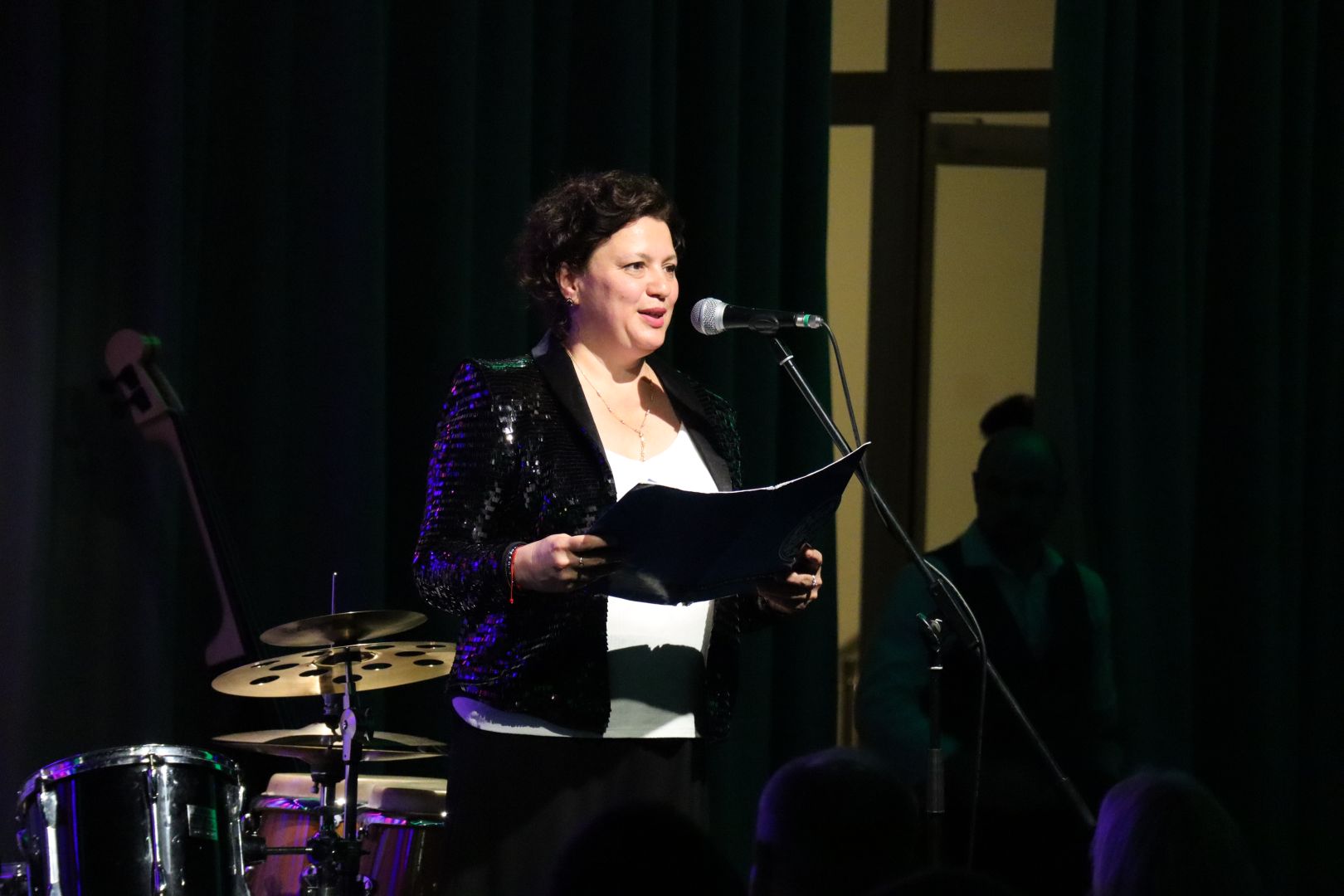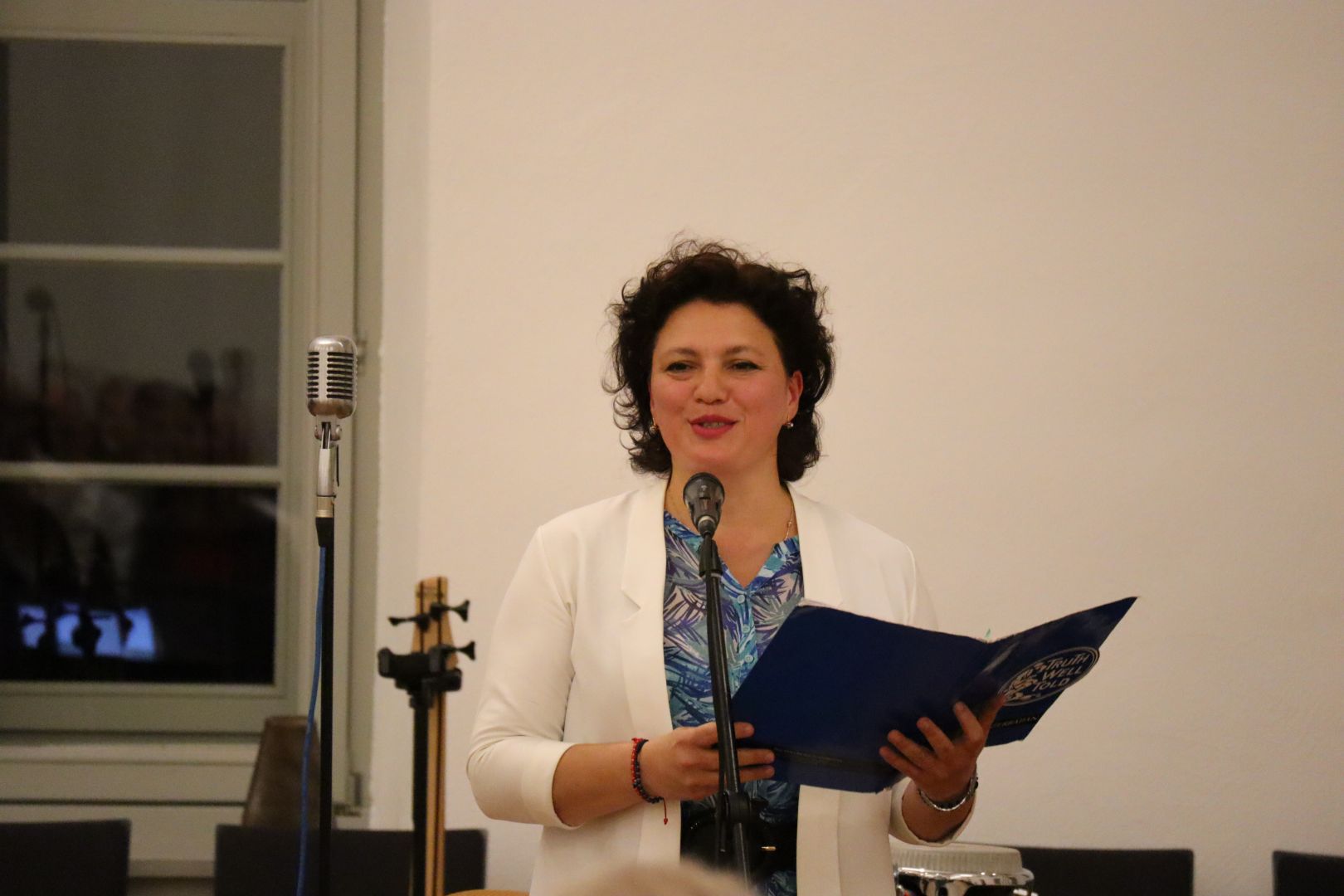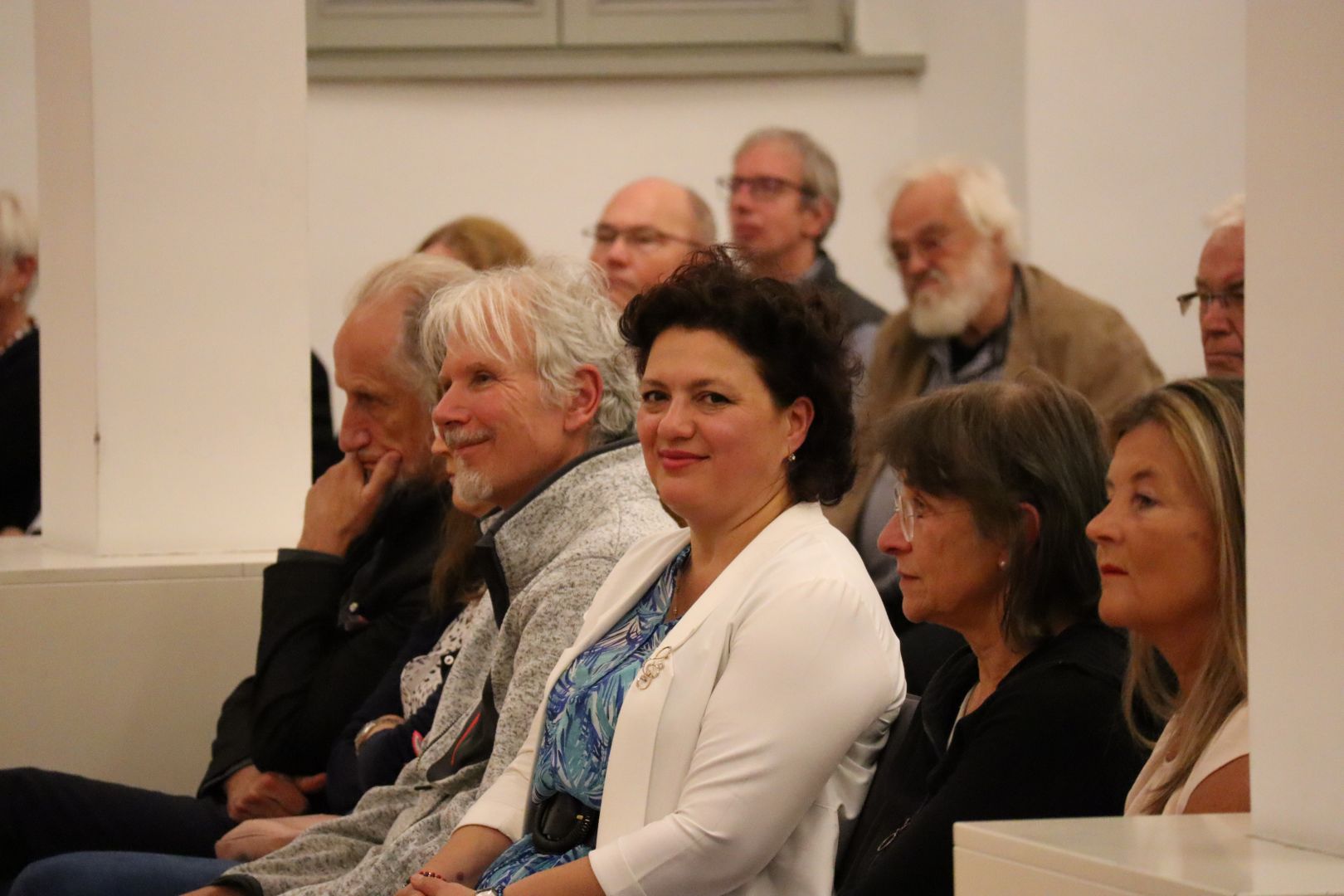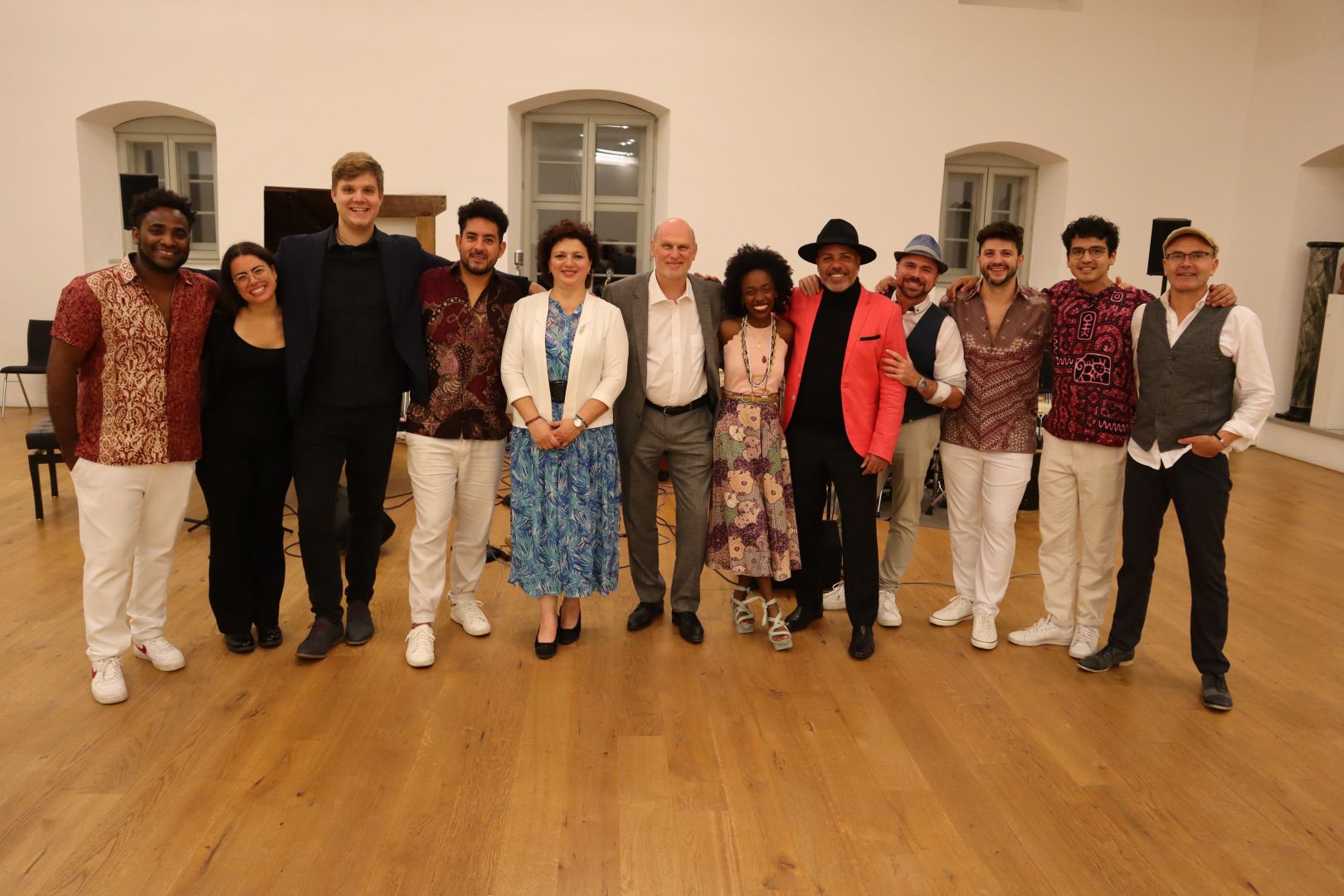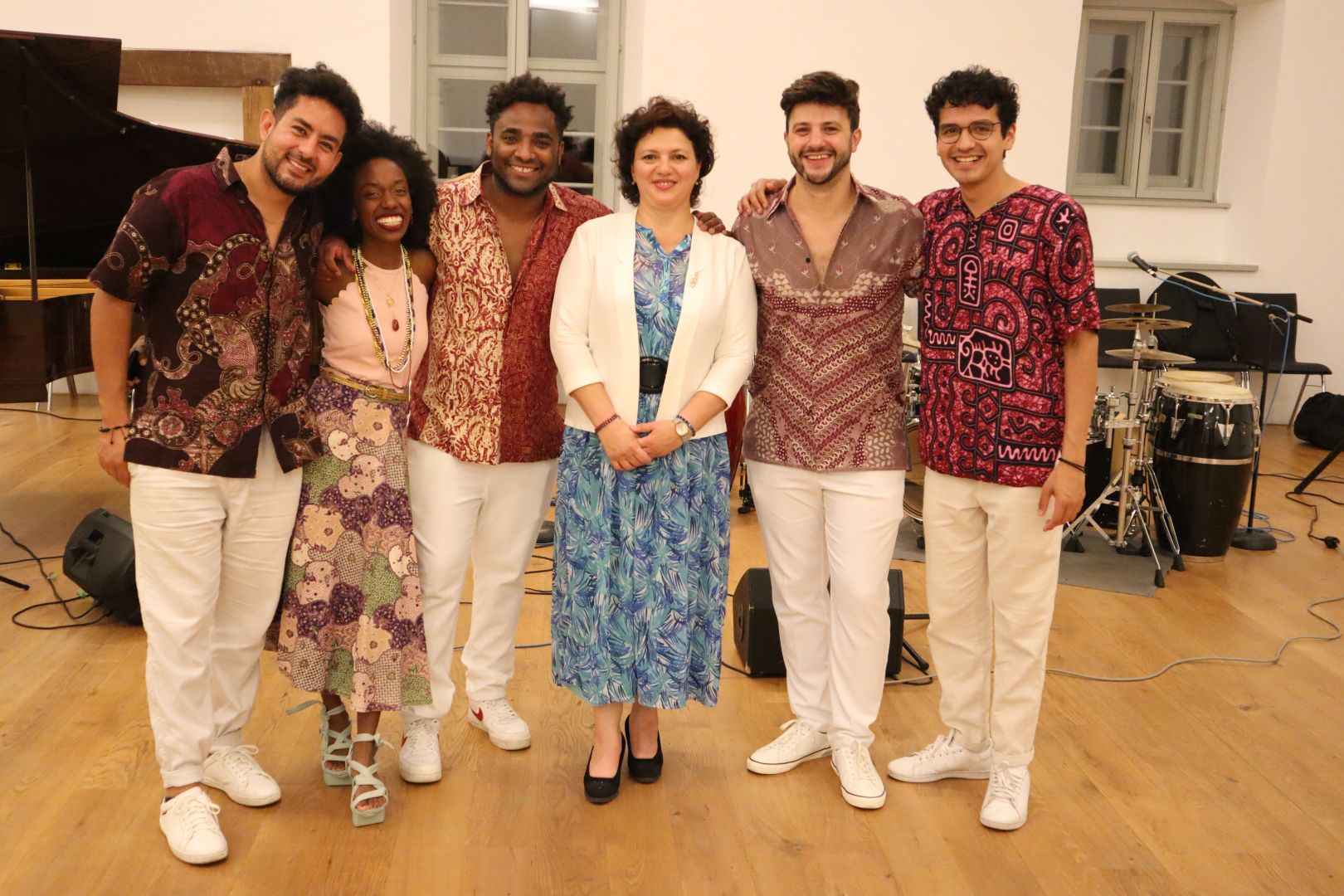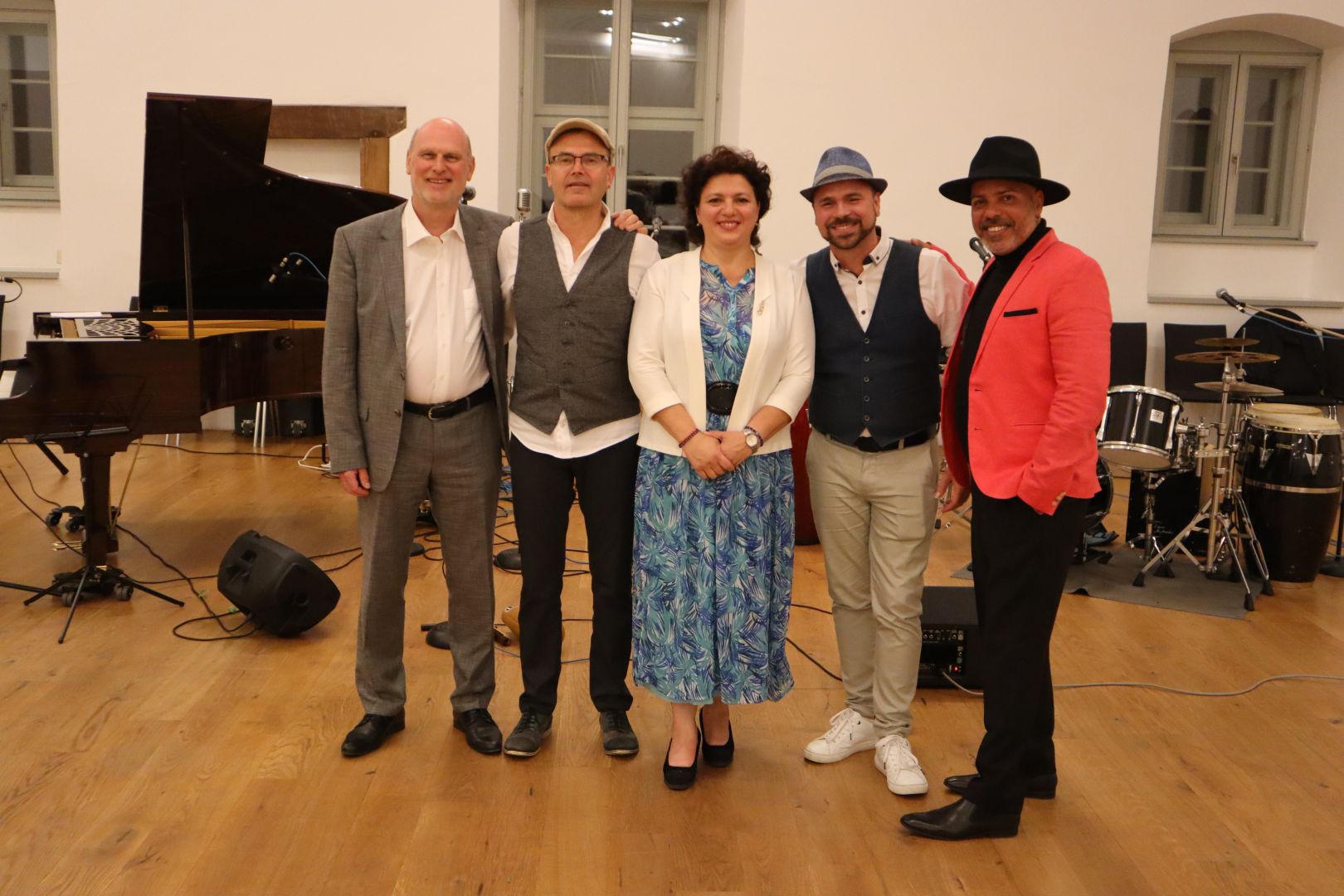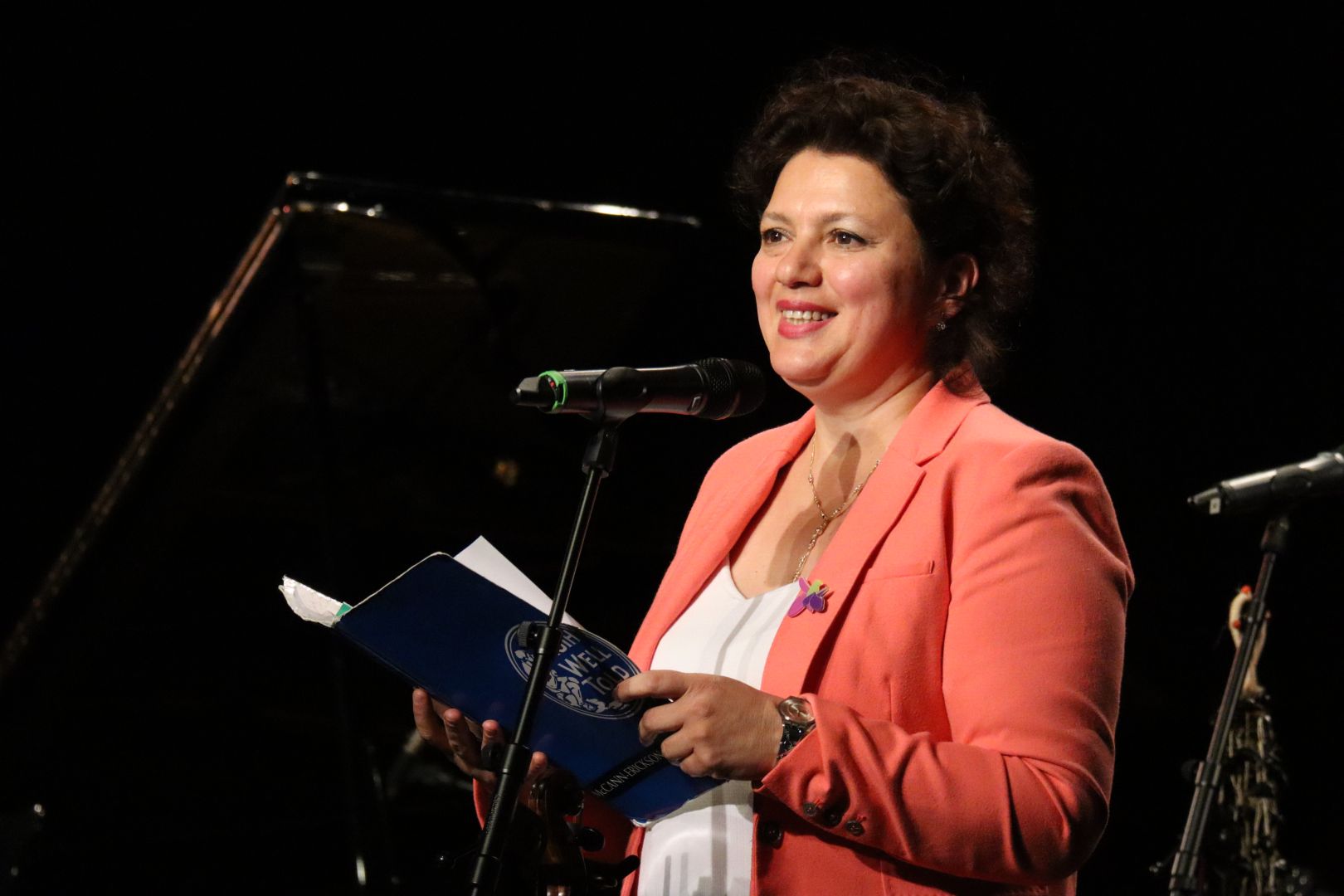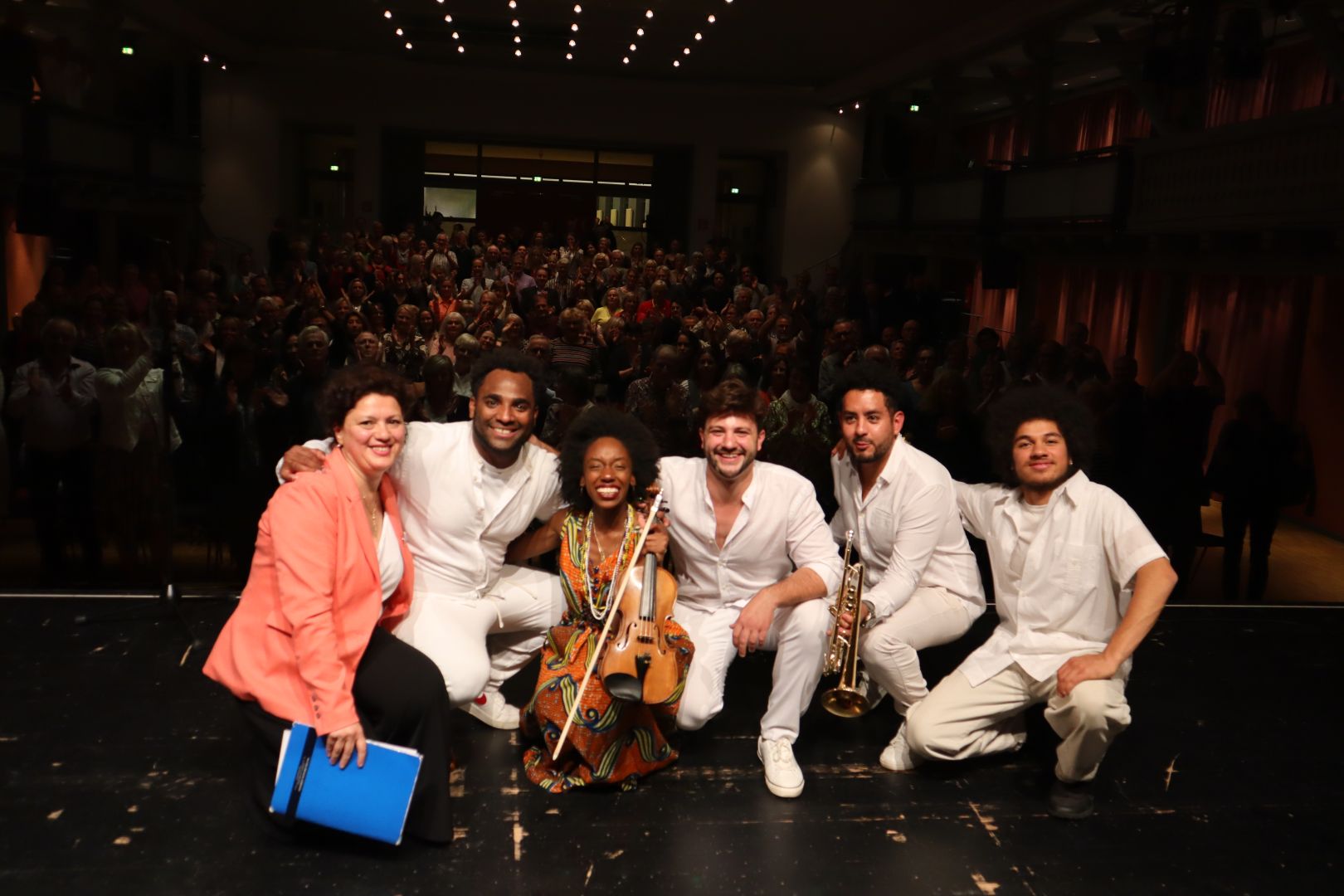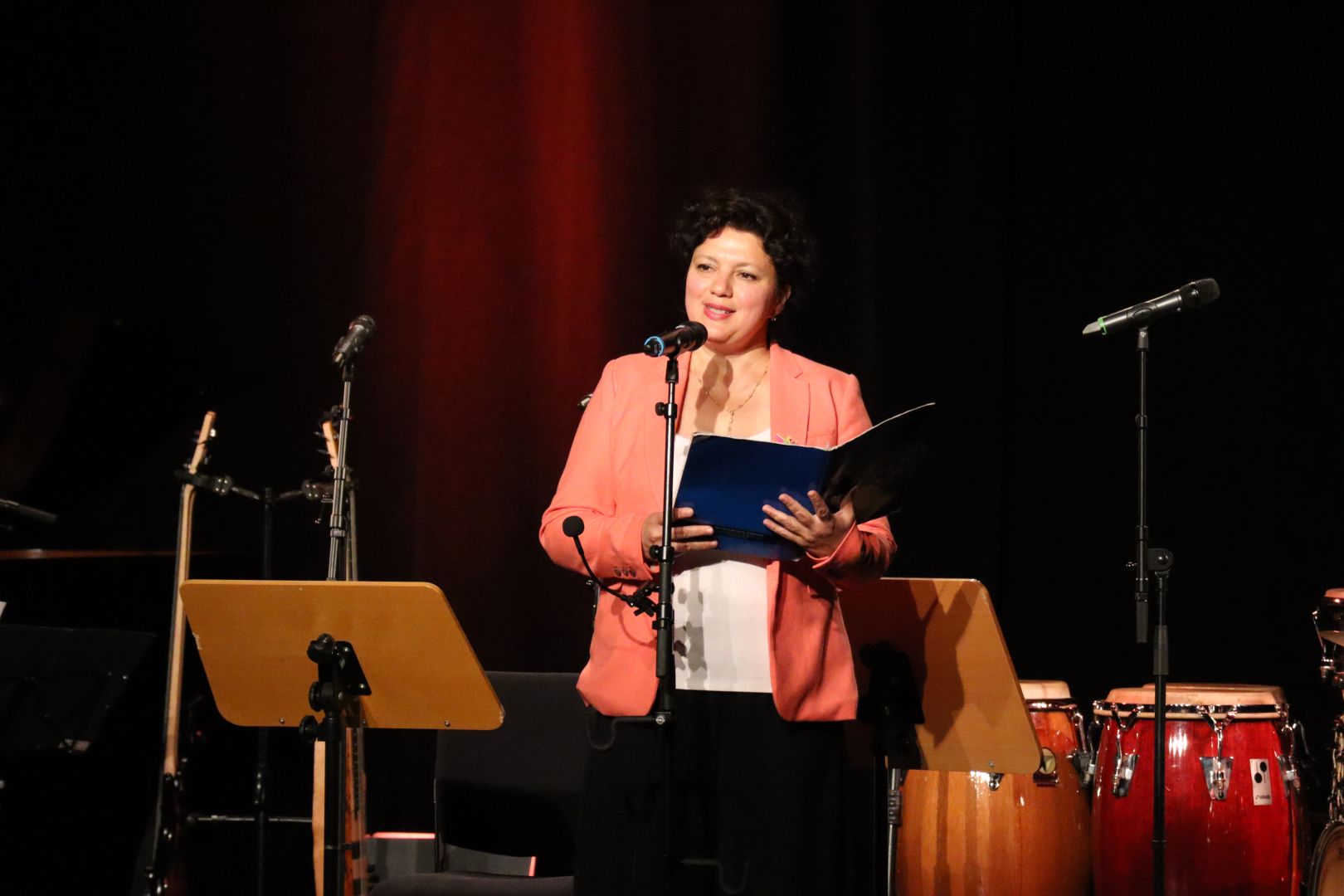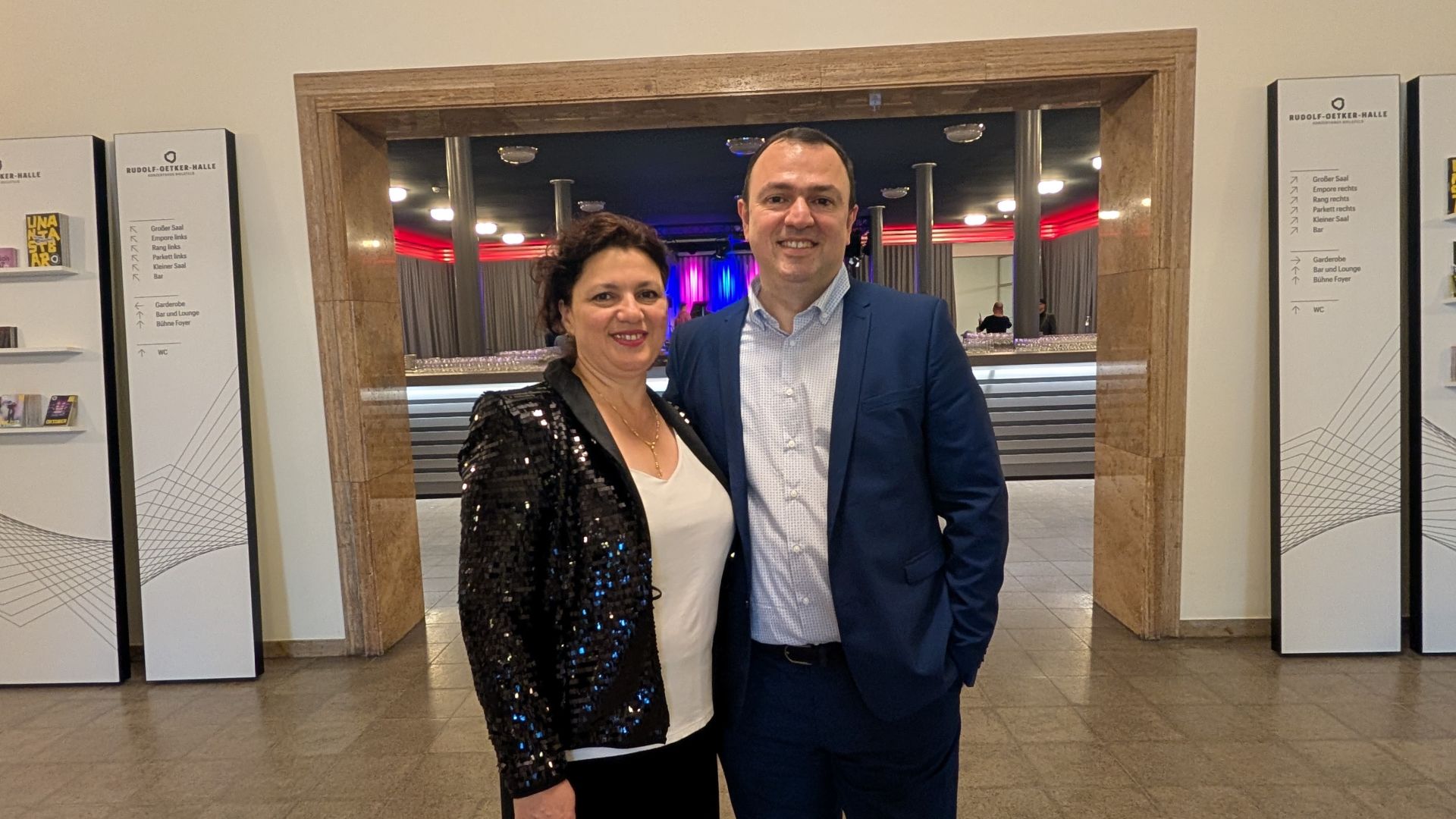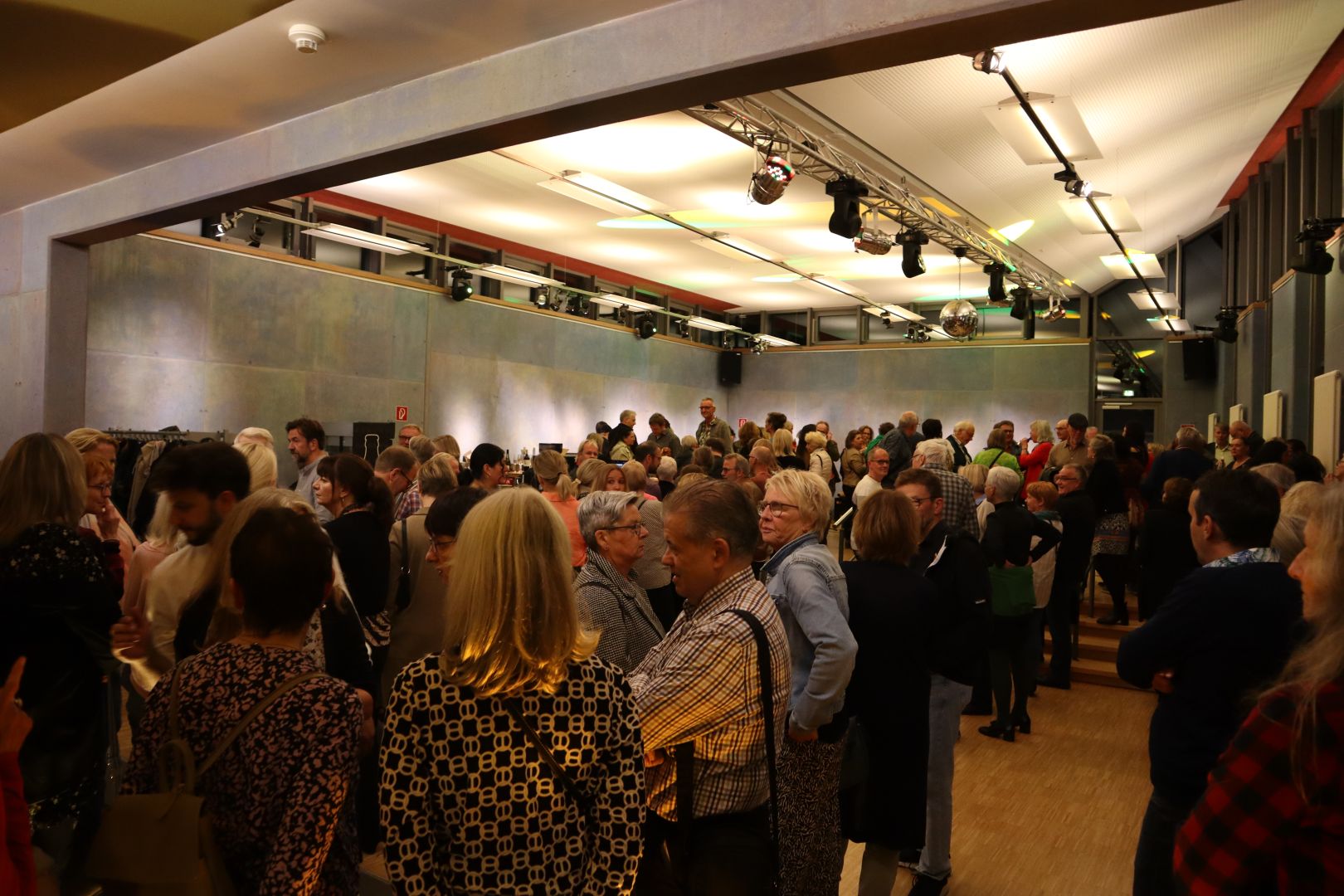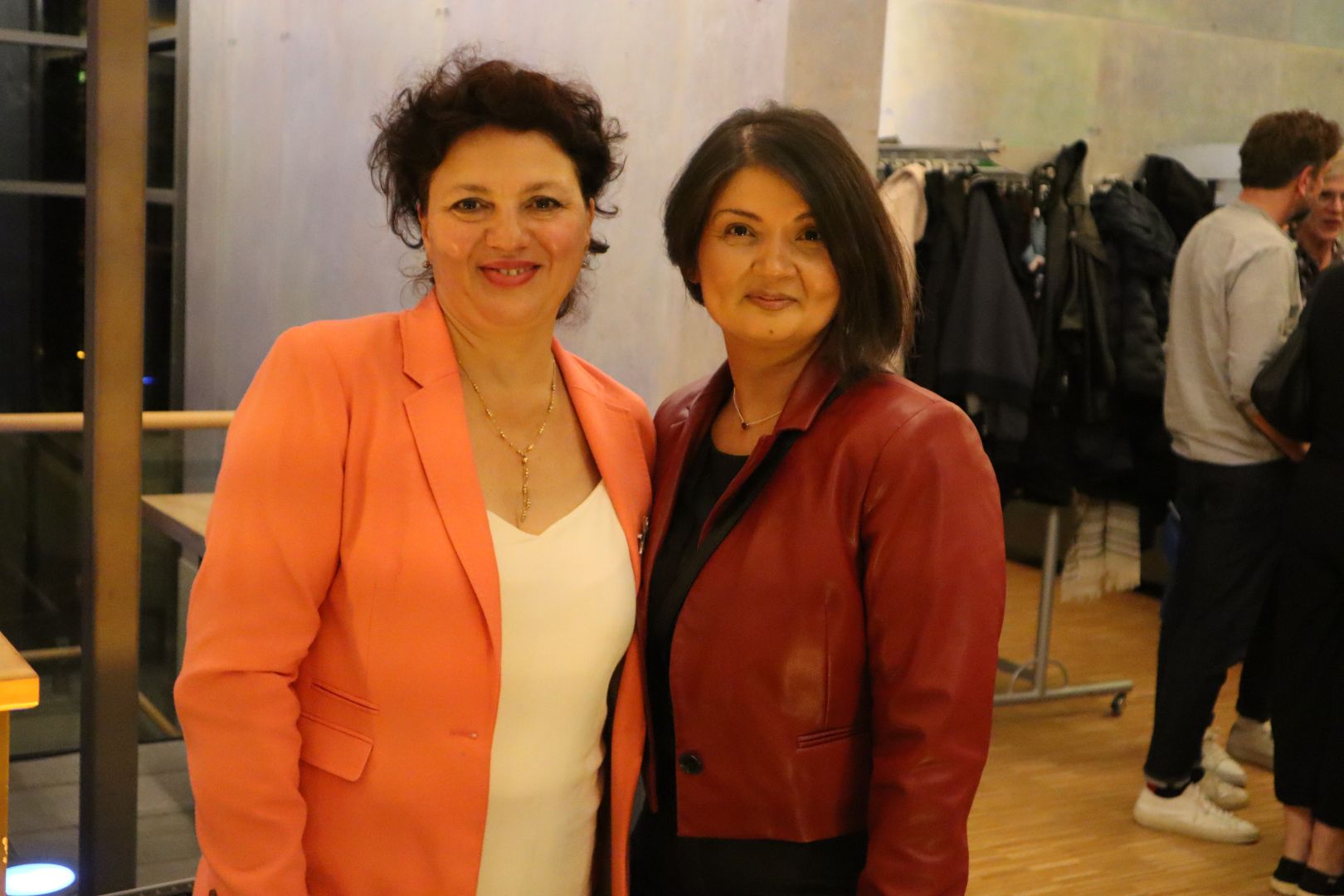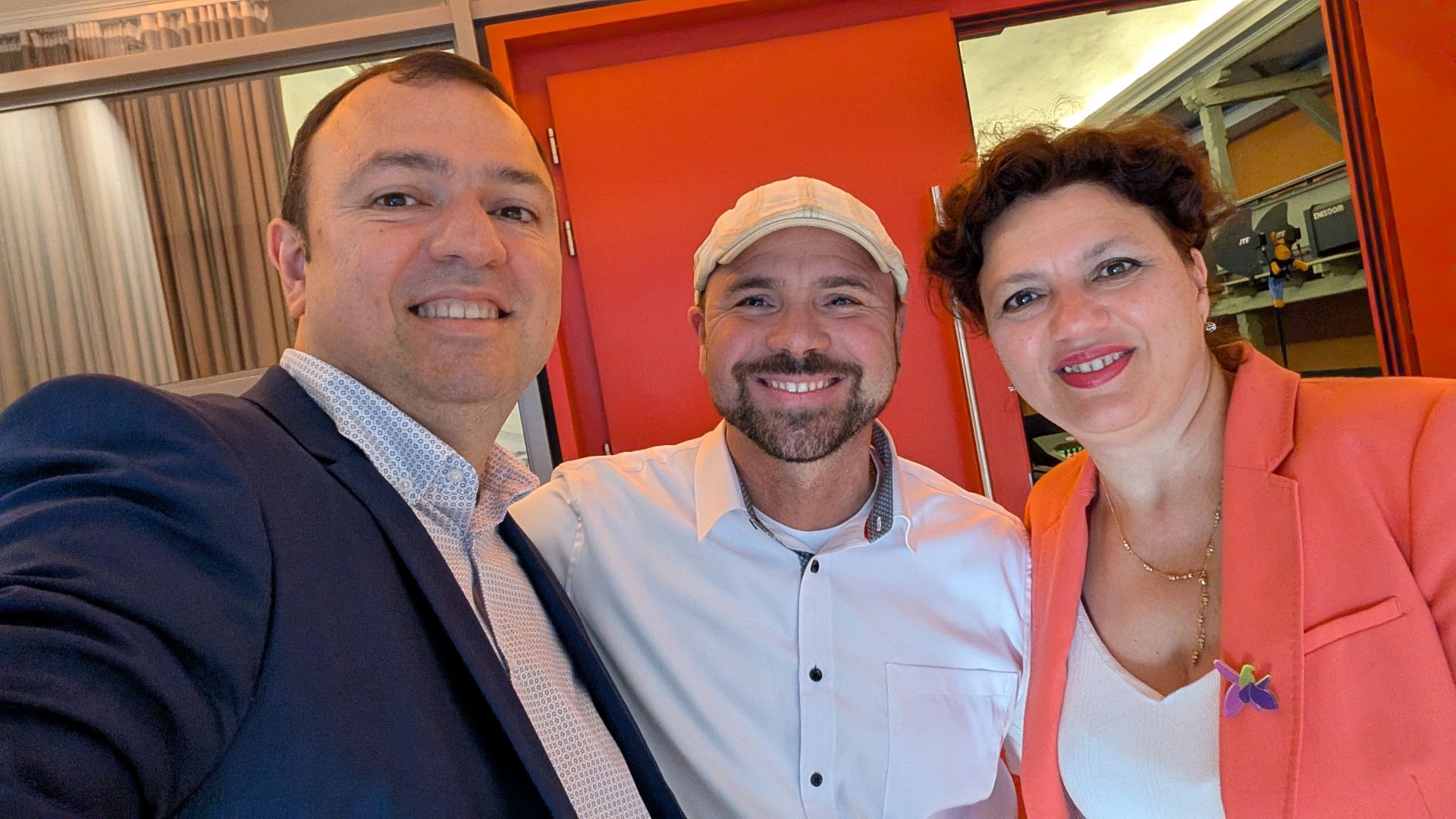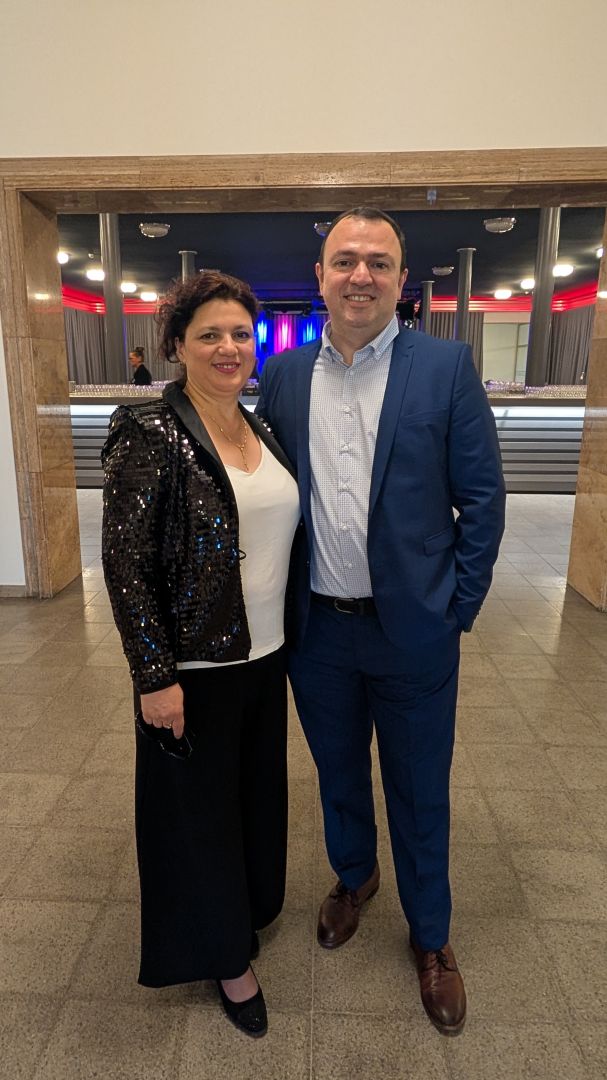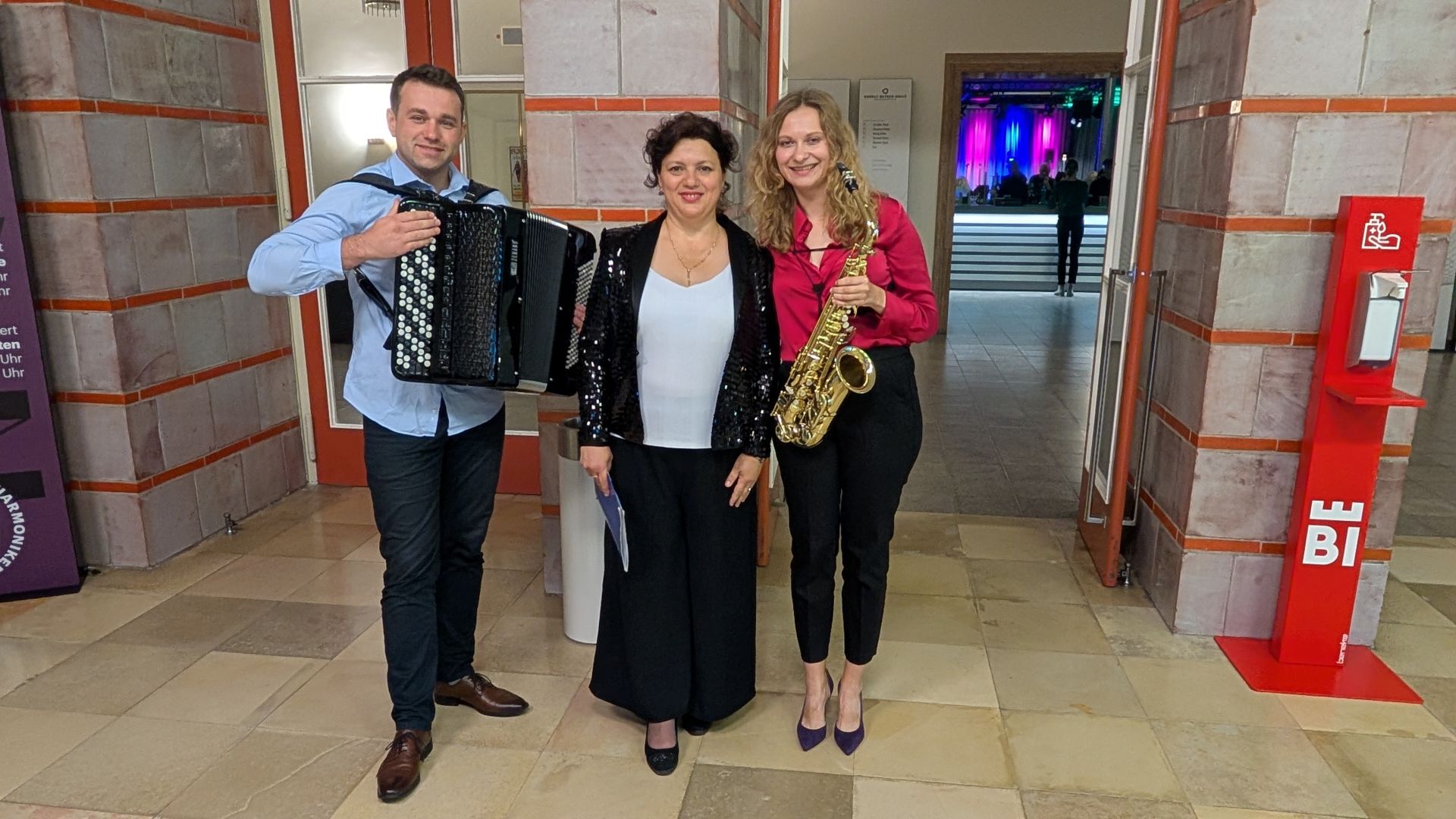Harmony of Sound Festival unites cultures through music [EXCLUSIVE]
![Harmony of Sound Festival unites cultures through music [EXCLUSIVE]](https://www.azernews.az/media/2024/10/24/trgjgtrjghy1.jpg)
Music has a unique power to bring people together and Azerbaijani composer Khadija Zeynalova understands this better than anyone.
As the founder of the Harmony of Sound International Music Festival, she has dedicated herself to celebrating different musical traditions and fostering cultural connections.
In this interview with AZERNEWS, Khadija Zeynalova shares her vision for the festival, and how she hopes to create a space for unity through sound.
She discusses the festival's origins, the exciting lineup planned for the upcoming 2024 edition focussing on Cuban music, and the importance of music as a tool for unity and understanding among people from different backgrounds.
Q: Could you tell us how the idea of organizing the Harmony of Sound International Music Festival came about and what are the main goals you are pursuing?
A: The idea of organizing the Harmony of Sound International Music Festival has been with me for a long time. I have always dreamed of creating my own international music festival to promote our country and the rich Azerbaijani musical culture in the world, particularly in Europe and specifically in Germany. After founding the Bridge of Sound orchestra in 2016, inspired by Johann Wolfgang von Goethe's work "West-östlicher Divan," I decided to organize a festival that could unite different nations, musical instruments, and styles.
Harmony of Sound International Music Festival, which I established in 2021, has become an important event that brings together various cultural traditions through music and helps to build bridges between cultures. Each year, our festival is dedicated to the musical culture of a new country. In previous years, we focused on Azerbaijan, Ukraine, and Argentina, and in 2024, we will pay special attention to Cuba.
The main goal of the festival is to create a platform where each country can showcase its musical traditions and instruments, whether they are folk, classical, or contemporary.
We aim to demonstrate cultural diversity through music and promote mutual understanding among peoples. Different musical traditions and cultures converge here.
Q: Why was Cuban music chosen as the theme for this year's festival?
A: Cuban music is a unique phenomenon that has absorbed elements from various cultures and styles, making it one of the most recognizable and beloved forms of music worldwide.
Over the centuries, Cuban music has developed under the influence of African, Spanish, and Caribbean traditions, resulting in a rich and diverse musical culture full of energy, passion, and rhythm. One of the most renowned and popular music genres associated with Cuba is salsa. This dance genre has gained worldwide fame due to its dynamism and rich rhythms.
The history of Cuban music begins with son cubano, a genre considered a precursor to salsa. Son emerged in the early 20th century as a blend of African rhythms and Spanish music, particularly traditional guitar music and bolero. Furthermore, we cannot overlook Cuban jazz, enriched with local rhythms and melodies.
Cuba has made significant contributions to global jazz culture through genres like Afro-Cuban jazz, which combines the improvisational freedom of jazz with the rich rhythms of African and Caribbean music.
Q: What aspects of Cuban music would you like to highlight during the festival?
A: Cuban music is incredibly interesting and multifaceted. It encompasses everything from captivating dance rhythms to Afro-Cuban melodies. Cuban music has absorbed elements of Spanish, African, and Latin American musical traditions, creating a unique sound landscape. This music possesses a special rhythmic pulse that is impossible to ignore. During our festival, we would like to emphasize this blend of styles — including salsa, rumba, son, and rarer Afro-Cuban genres. These rhythms not only accompany dances but also express the joy and life energy of the Cuban people.
It is this combination of passion, rhythm, and cultural heritage that makes Cuban music unique and appealing to listeners worldwide. Cuban music is not only about sounds; it is also an essential part of the cultural identity of the nation. It accompanies Cubans throughout their lives — from family celebrations to national festivals. Cuban music has the ability to convey joy, passion, and even pain, making it relatable and understandable to listeners all over the world.
Cuba continues to be a centre of musical innovation, and its contribution to global culture is immeasurable.
Q: Which works presented at the festival do you consider the most significant, and why?
A: The compositions presented at our festival were very interesting and diverse. We had the honour of hosting many wonderful ensembles, soloists, and musicians with unique and captivating concert programs. Special attention was drawn to the new works that premiered at the festival. The program included pieces by composers from Germany, Cuba, Spain, and Azerbaijan, highlighting the international character of our event. I would particularly like to mention two of my own compositions that were performed for the first time at this festival. These pieces were created specifically for the festival and reflect the interaction of musical cultures from different countries. They are significant works not only for me personally but also for the entire program, as they symbolize the festival's main idea — cultural unity through music.
Q: In your opinion, what is the importance of exchanging musical cultures between nations, especially in the context of the Harmony of Sound Festival?
A: Music creates a space of strength and hope that prevents us from falling into despair and, on the contrary, maintains faith in the possibility of peace.
The Harmony of Sound International Music Festival builds bridges between cultures, religions, and nations. It demonstrates that music can truly unite people, regardless of their nationality, background, religion, or political views.
The festival plays an important role in promoting peace and unity among people from different cultures. Harmony of Sound is designed as a platform for exchanging musical and cultural traditions between countries, styles, musical genres, and various musical instruments. At the heart of our festival is always music that knows no borders. Our goal is to promote the perception and acceptance of New music, connecting it with traditional music in the context of intercultural and international dialogue. We also strive to support young artists and musicians from Germany and other countries, fostering cultural exchange and uniting people through concerts featuring invited professional artists and ensembles.
Q: What are your plans for the future? Will you continue the Harmony of Sound festival? Are there any solo projects or other initiatives you plan to implement?
A: We have grand plans for the future. We want to continue developing and expanding our Harmony of Sound festival, spreading its concept and attracting even more international audiences. The main goal of our festival is "Music Without Borders." Through music, we can communicate with all people, regardless of their nationality, political beliefs, or cultural background.
We also have many other projects. This year, we released our third CD in the USA and Germany. Next year, we have a lot of exciting projects and ideas planned, both related to the festival and individual initiatives. We will continue to create musical programs that unite people and cultures, and delight our audience with new musical discoveries.
Note that Khadija Zeynalova is a graduate of the Baku Academy of Music, the Detmold Music Academy and the University of Paderborn in Germany, where she defended her doctoral dissertation with honours on the topic of "Azerbaijani Musical Culture of the 20th Century and Trends in Western Music". Since 1999, she has been a member of the Union of Composers of Azerbaijan.
While living in Germany, she founded the international musical group Bridge of Sound, which successfully represents cultural diversity in the music industry.
In 2007, Khadija became the first Azerbaijani female composer accepted as a member of the German authors' society GEMA. Her achievements have been recognized by prestigious scholarships such as the Friedrich-Ebert-Stiftung, DAAD and a scholarship from the German Culture Ministry.
As a talented composer, her works have been performed at famous festivals and concerts in countries such as Azerbaijan, Austria, Germany, Greece, Georgia, USA, Canada, Great Britain, Italy, Hungary, Turkey, Cyprus, Japan, Ukraine and many others.
In 2024, she was awarded the title "Künstlerin des Jahres – Composer of the Year" by the Kloster Landschaft OWL foundation and the German Ministry of Culture, and was also nominated as "Artist in Residence".
----
Laman Ismayilova is AzerNews’ staff journalist, follow her on Twitter: @lmntypewriterrr
Follow us on Twitter @AzerNewsAz
Here we are to serve you with news right now. It does not cost much, but worth your attention.
Choose to support open, independent, quality journalism and subscribe on a monthly basis.
By subscribing to our online newspaper, you can have full digital access to all news, analysis, and much more.
You can also follow AzerNEWS on Twitter @AzerNewsAz or Facebook @AzerNewsNewspaper
Thank you!


